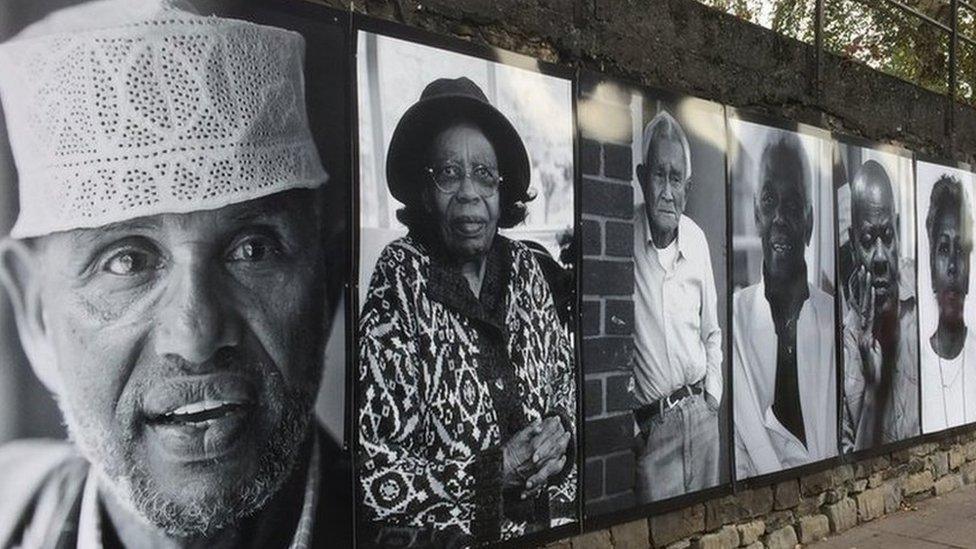'I can be the one to make a change in my homeland'
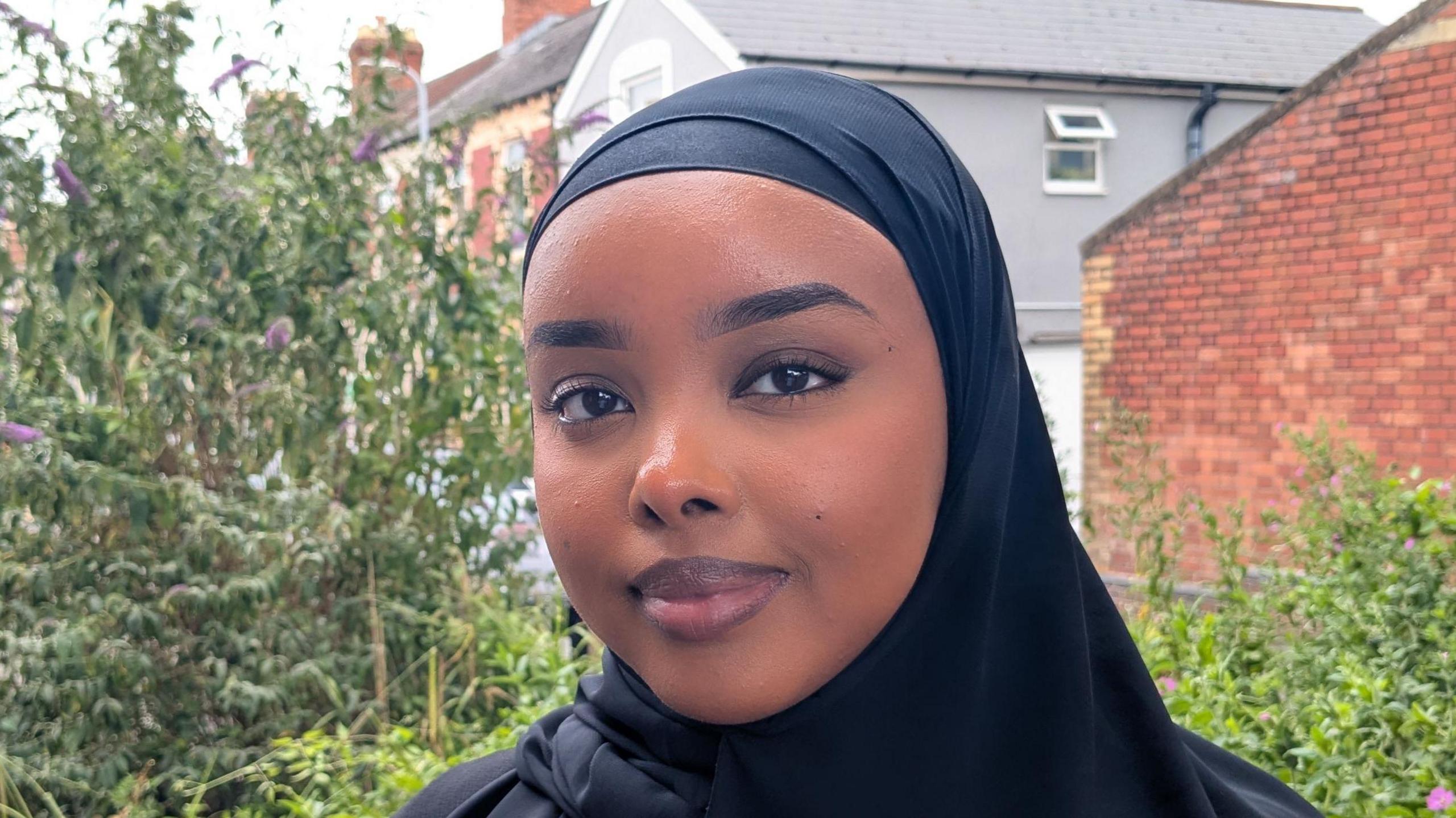
Munirah Hashi, 27, wants to travel to Somaliland to make an impact there
- Published
In a conference room overlooking Grangetown in Cardiff, chairs are set out and Welsh flags are hung alongside the tricolour flag of Somaliland, a self-declared republic in the horn of Africa with deep ties to Wales.
"Today is a historical day for the Somaliland Welsh community," says Prof Eid Ali Ahmed.
"We are commemorating the 65-year anniversary, when Somaliland got its independence from Great Britain."
It is an important milestone for the long-standing community, which has existed in Cardiff for more than 150 years.
"Today we are showing that journey and connection between Wales and Somaliland," the 75-year-old adds.
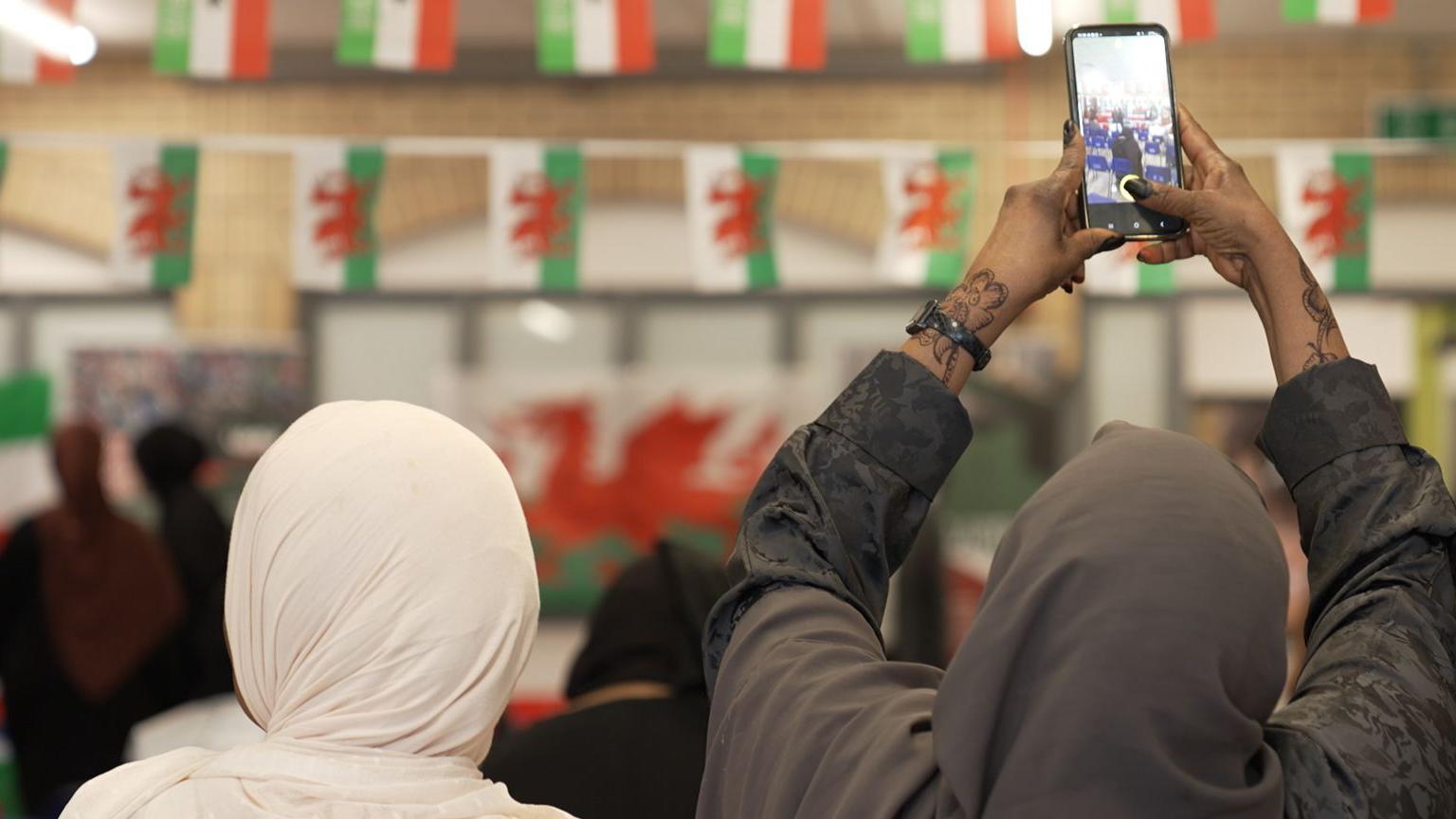
The commemoration event was held at Channel View Leisure Centre in Grangetown
'Embrace your culture'
Filing into the room are community elders, as well as guests from Somaliland's parliament. But most importantly for many, young Welsh Somalilanders are here to learn about their history.
"I think it's important, especially as the youth now, to embrace your culture, embrace your identity on either side," says 27-year-old Munirah Hashi, who was born and raised in Cardiff and describes herself as a Welsh Somalilander.
"It's important to embrace it, be part of the community and partake in events such as this."
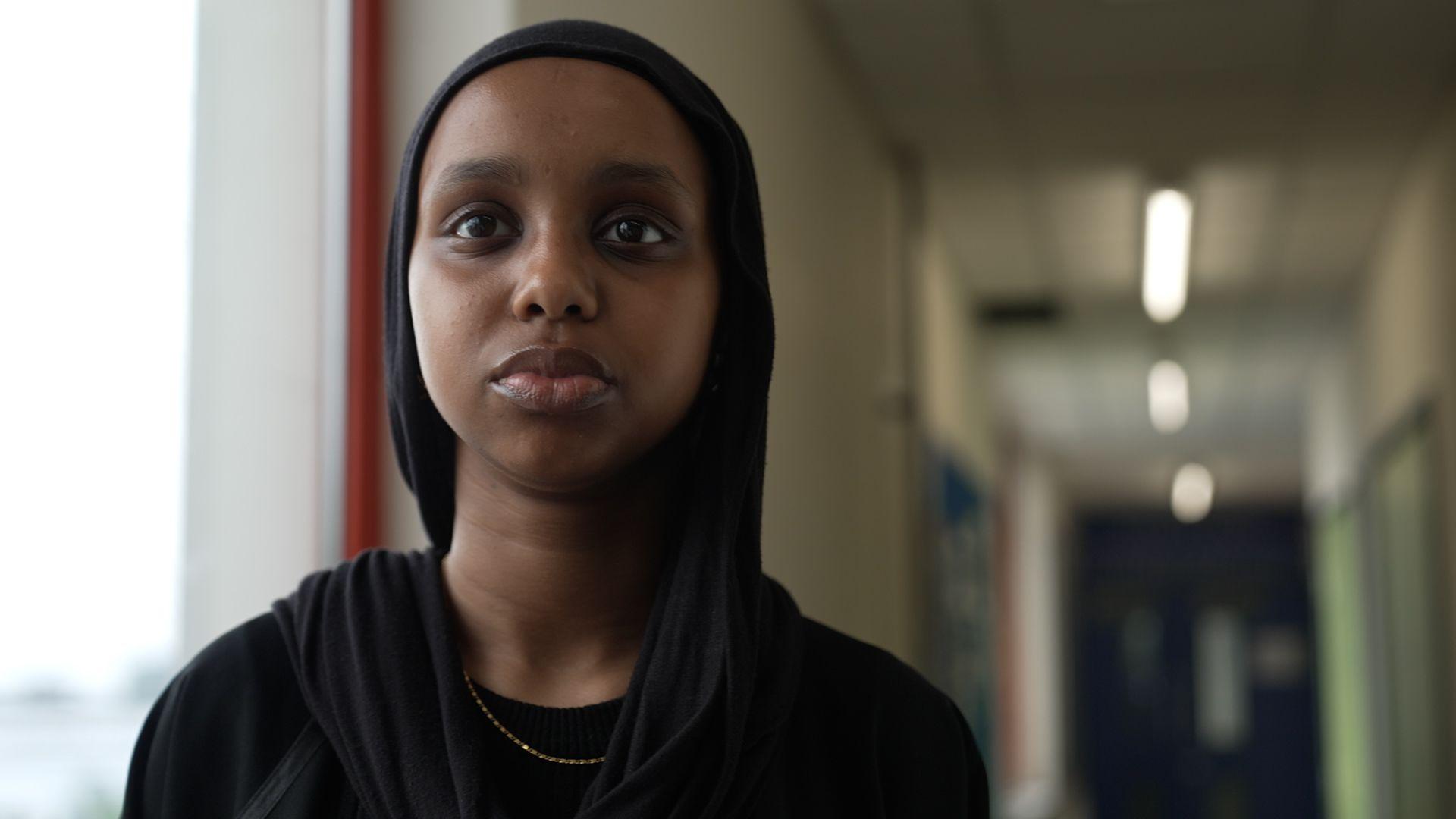
Zaynab Ahmed, 17, enjoyed translating key parts of the event into Welsh
As the event gets under way, 17-year-old Zaynab Ahmed is translating speeches made in English and Somali into Welsh.
"I would say that I am a Welsh person, I would say I am a Somali person, and I don't think someone should have to compromise one to claim another," she says.
Zaynab, who attended Welsh medium primary school, adds: "Welsh speaking was something that I always knew like the back of my hand so to come into a place where a lot of people are surprised and shocked about it and are interested in learning more is really special."
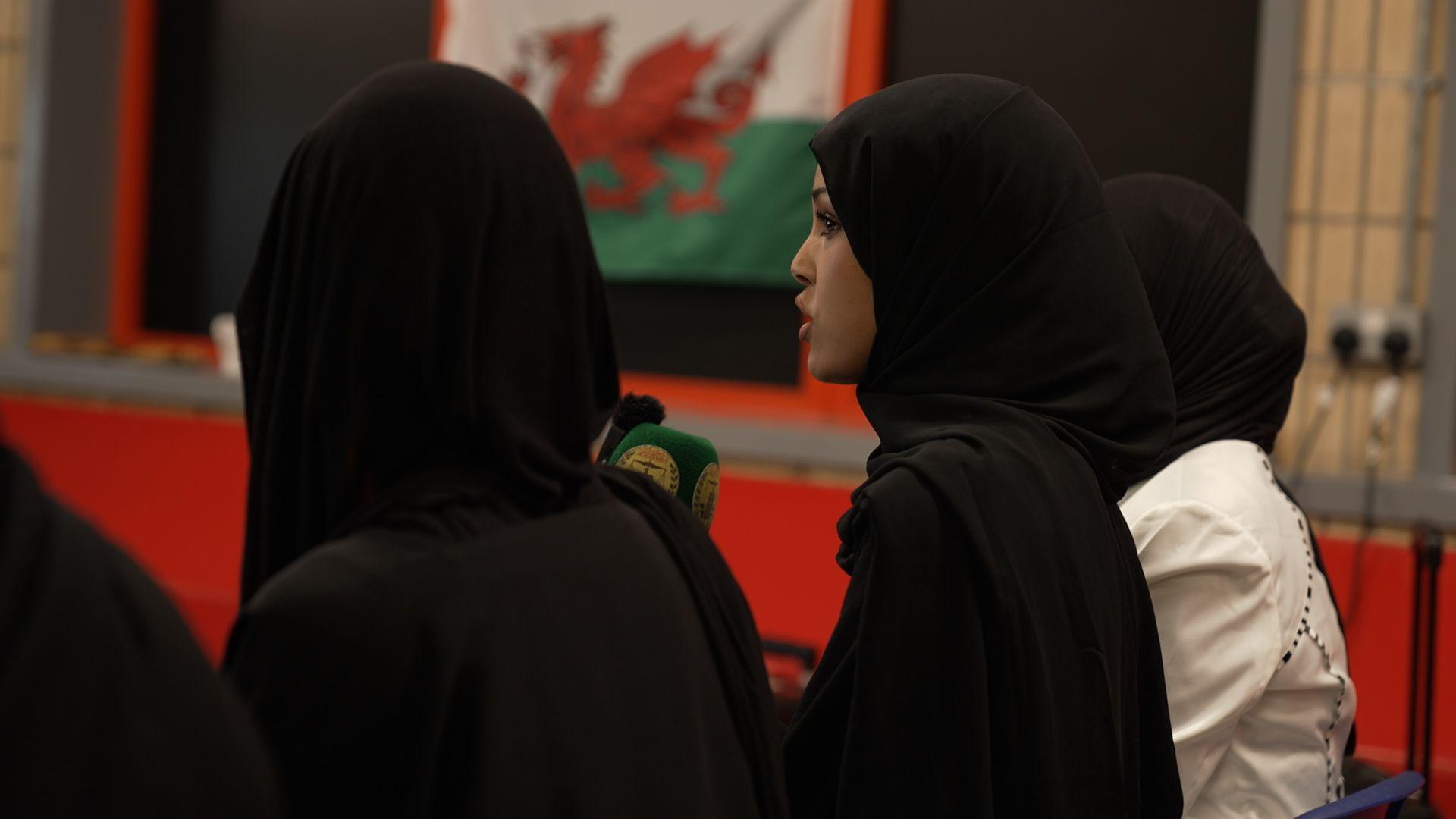
Young members of the community took part in the event to speak about their experiences as Welsh Somalilanders
Munirah and Zaynab take to the stage to lead a panel about their experience as Welsh Somalilanders. It has a big impact in the room.
"Amazing," says Prof Ahmed.
"I was so really impressed that many of our young generation, they came," he adds.
"The questions they're asking… the commitment they're making…They're showing they are Somalilanders, but they are also Welsh, and they were speaking the Welsh language as well.
"That was really giving me motivation, and telling me that legacy… will not die, it will continue."
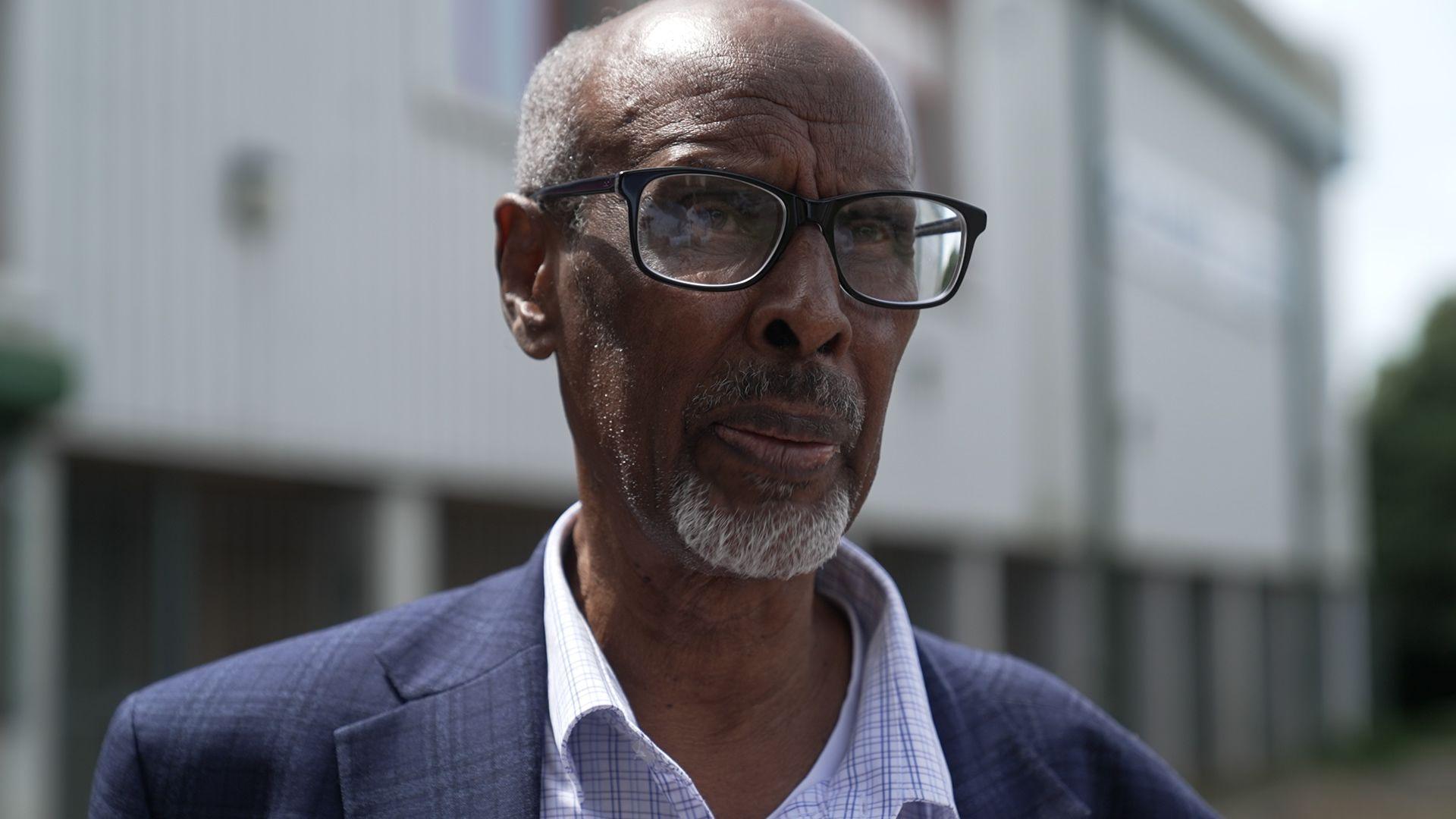
Professor Eid Ali Ahmed, 75, was proud to see young people learning about the history of Somaliland
The legacy Prof Ahmed refers to is the campaign for Somaliland to be recognised as an independent country.
Somaliland has a complicated history - it was under British colonial rule for 72 years, until it gained independence on 26 June 1960.
"We were all very happy," says Prof Ahmed.
Five days later, on 1 July 1960, Somaliland voluntarily joined with Somalia.
But in 1991, after years of civil war and the overthrow of the military dictator Siad Barre, Somaliland unilaterally declared independence from Somalia.
It developed a working political system, government institutions, a police force and its own currency, but 34 years later Somaliland remains unrecognised by the international community, and Somalia still considers it a part of its territory.
'Cardiff was the first place we found refuge'
In 1991, Fatima Saeed Ibrahim, who was raised in Newport, returned to Somaliland and eventually became a senior foreign affairs advisor to Somaliland's parliament.
'I'm a Welsh lass," she says, "but I've lived in Somaliland for a very long time."
She says when the conflict first broke out, "Cardiff was the first place that we found refuge, we found understanding".
She adds: "The Welsh youngsters now, they're realising that they have roots, they have a history, that their history is extraordinary."
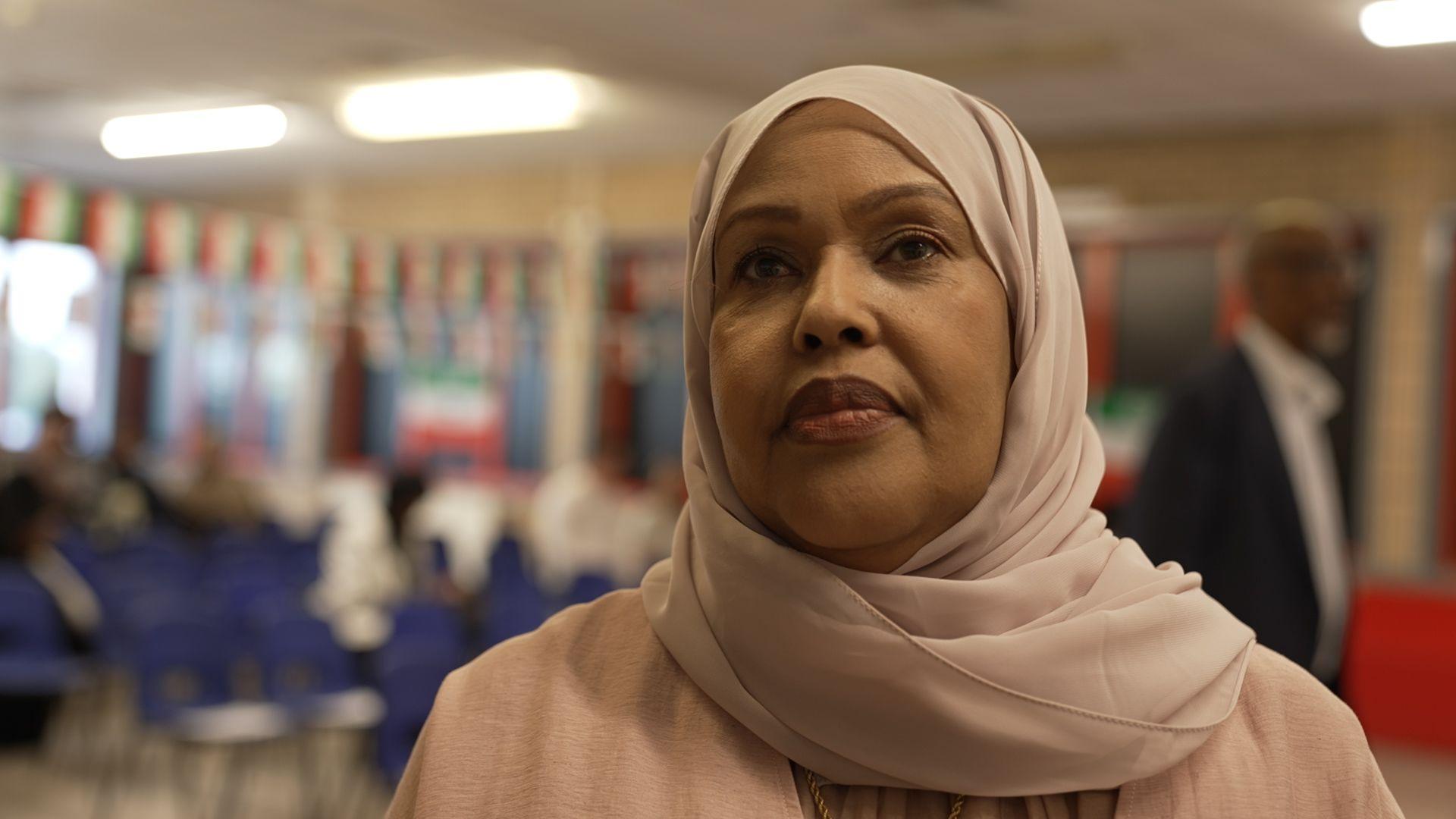
Fatima Saeed Ibrahim works as an advisor to Somaliland's parliament
Overseeing the day's proceedings is Ali Abdi, a key figure in the community.
"It's so important to be passing that baton down to the younger generation," he says. "I want to see Somaliland get recognised in my lifetime."
He adds: "We've moved away from the generation of taxi drivers and security guards, although those jobs still exist. We're professionals across IT, HR, government and business as well."
With about 50 members of the community in attendance, Ali seems pleased with how the day has gone so far.
But he insists the best is yet to come.
"We're now heading to the heart of Grangetown on the junction of Corporation Road where we're going to enjoy some traditional Somali food – Bariis and Hilib [meat and rice]."
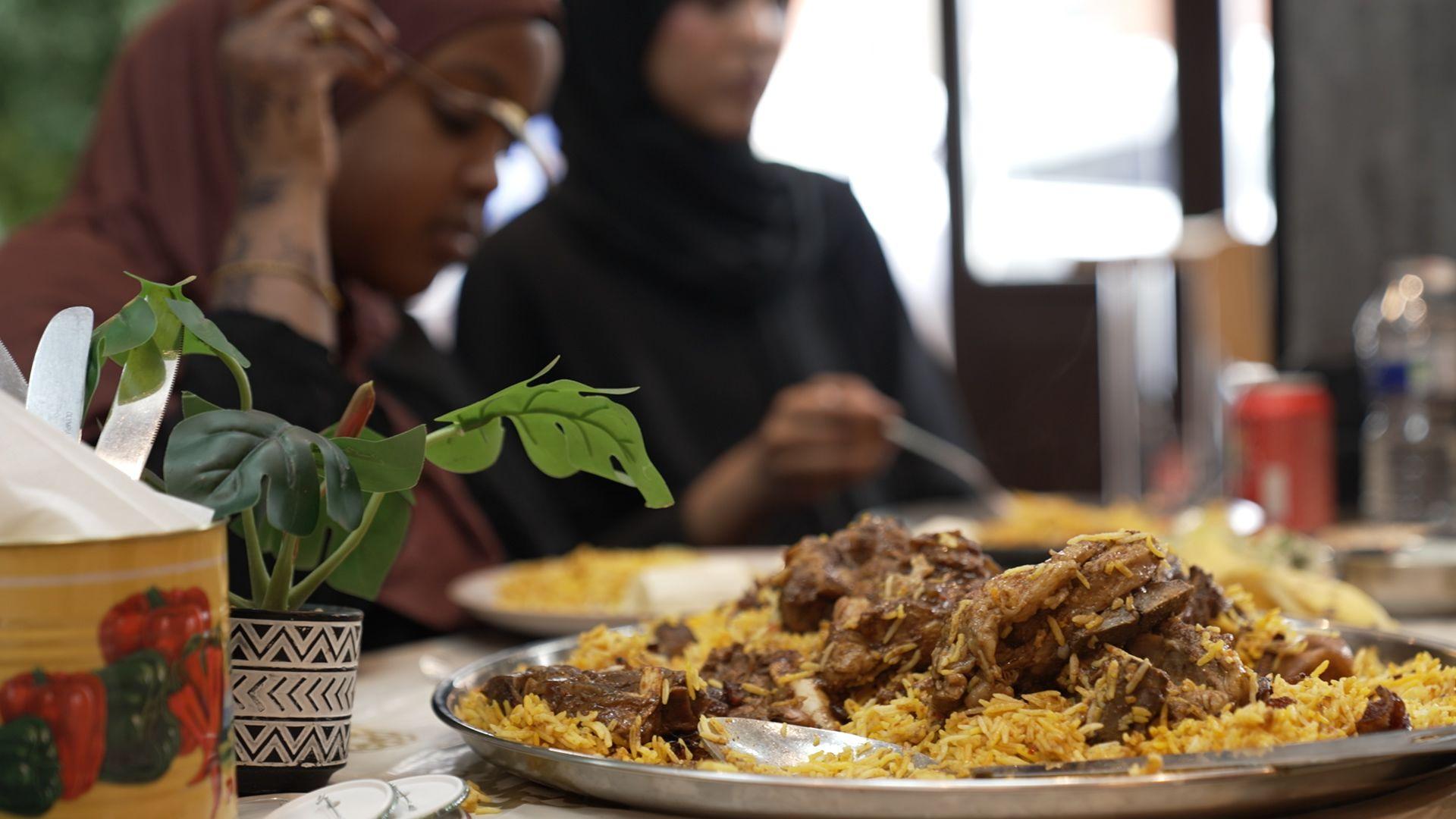
Bariis and Hilib (meat and rice) is a traditional Somali meal for big gatherings.
In a small restaurant adorned with Welsh and Somaliland flags, traditional dishes - lentil soups, meat and rice, stews and chopped salads - are brought out in quick succession.
"This is the best part of the day, literally!" says Mr Abdi.
"Nice and hot spicy food. Somali Bariis and Hilib, can't go wrong."
Also enjoying the meal is Munirah.
"I think it was a good way to close the event today, everyone enjoys having a nice meal – even better that it's Somali traditional food," she says.
Munirah, inspired by today's event, says: "In the near future I would like to see if I can be the one that makes a change in my own country."
The UK government's position is that Somaliland's status needs to be resolved in the local region.
A Foreign Commonwealth and Development Office spokesperson said: "The UK believes that the settlement of Somaliland's status is an issue for Mogadishu and Hargeisa to decide through a consultative process and dialogue, in which we encourage both parties to engage.
"Alongside others in the international community, we do not recognise Somaliland's unilateral declaration of independence.
"The UK is a leading partner of Somaliland, supporting its stability and promoting economic, human and social development. For a decade the UK has been the only Western country with a permanent diplomatic presence in Hargeisa."
Related topics
- Published2 January 2024
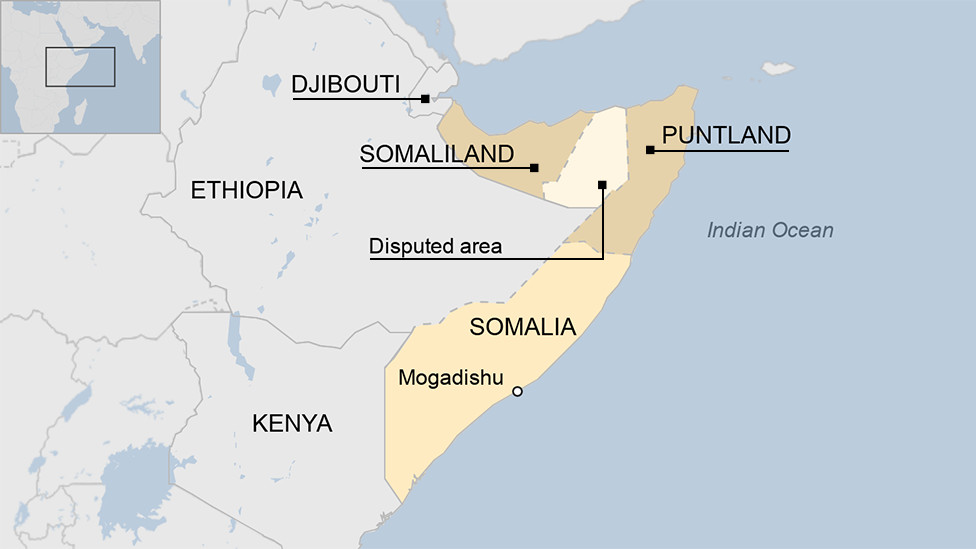
- Published18 May 2016
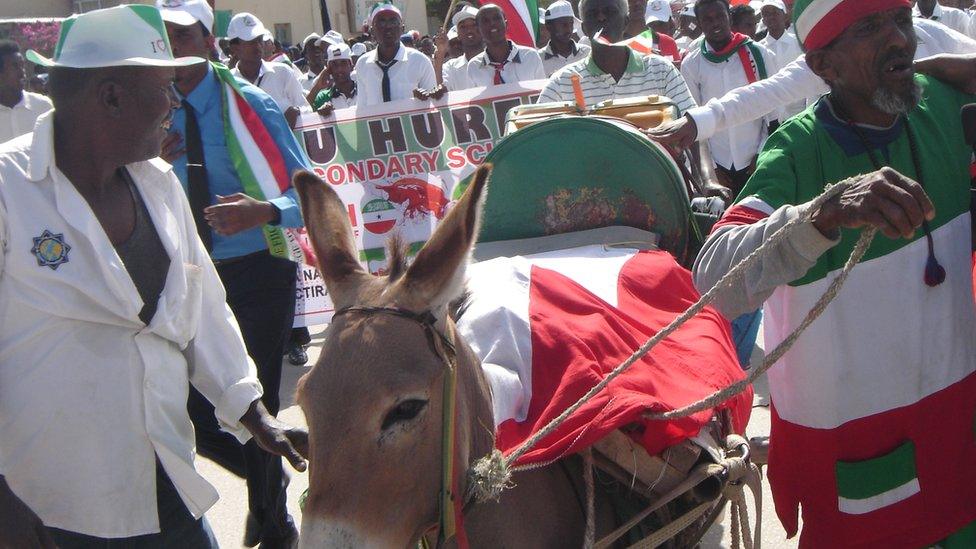
- Published22 November 2016
